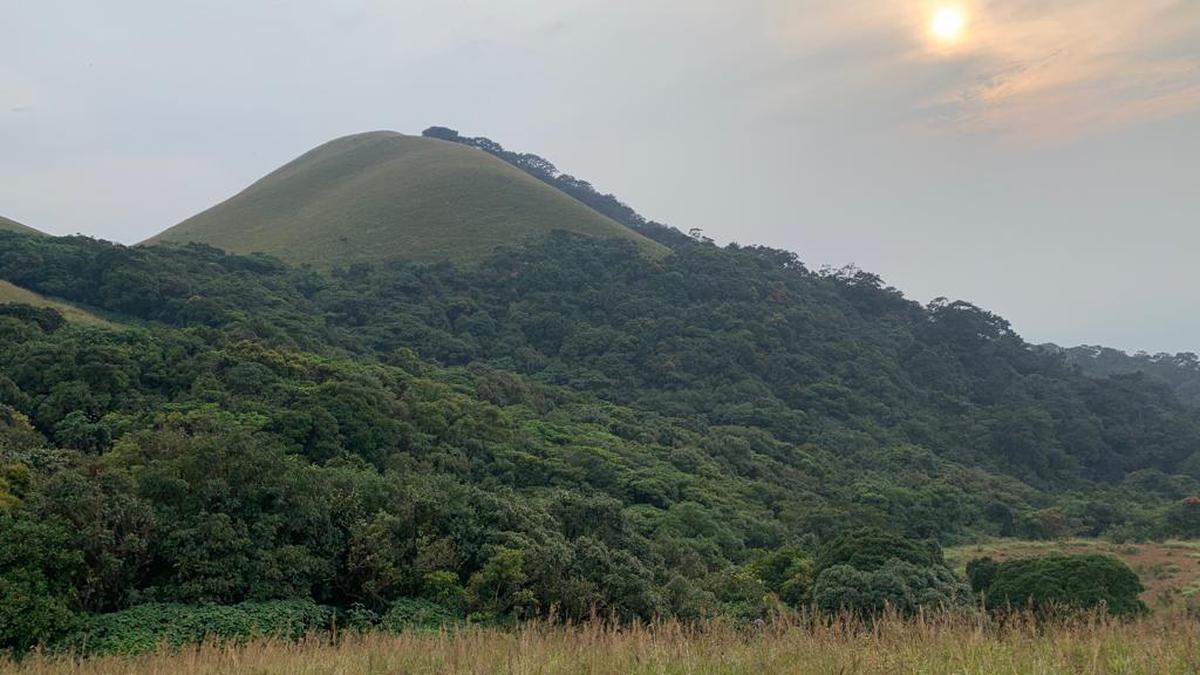
Shola forests in Sakleshpur, a biodiversity hotspot, face threat as Government departments bicker over its status
The Hindu
The 7,938-acre shola forest that is part of the Western Ghats, recognised as one of the biological hotspots in the world and notified as an ecologically sensitive area by the Ministry of Environment and Forests, has now become a bone of contention between the Forest Department and the Revenue Department.
Moorukannu Gudda in Sakleshpur in Hassan district is an expanse of lush shola forest that is home to several species of wildlife and over two dozen freshwater streams that feed rivers originating from Western Ghats. Today, it is threatened by human intervention as government departments bicker over its status.
The 7,938-acre shola forest that is part of the Western Ghats, recognised as one of the biological hotspots in the world and notified as an ecologically sensitive area by the Ministry of Environment and Forests, has now become a bone of contention between the Forest Department that claims the area to be a notified forest and the Revenue Department, that is accused of granting land for various activities over the years, insisting it is revenue land.
This has resulted in alleged “encroachment” of over 2,000 acres, including about 1,510 acres of land granted through 508 grants so far by the Revenue Department, Forest officials say. About 611 acres has been marked as encroachments, mostly by coffee estates, residential homes and 20 resorts. At least 122 FIRs have been filed against such “encroachments” by Forest Department, multiple documents with The Hindu show.
The disagreement between the departments has become acute since October 2022, after the Sakleshpur assistant commissioner in a voluminous report to Hassan Deputy Commissioner, a copy of which is with The Hindu, declared the area as not forest, and suggested it be declared as “communal or village forest” under the Rural Development and Panchayat Raj Department.
In a scathing remark on Forest Department that has riled Forest officials, the Assistant Commissioner has also termed the conservation efforts of Forest Department in the past 100 years as “biased, in conflict of interest, causing monetary and legal damages.”
However, a study by the Forest Department has shown that the thick forests are home to 31 major fresh water streams that feed seven East and West flowing rivers such as Hemavati, Kabbinale, Dodda Hole, Kempole, Hongadhalla and Adda Hole. Elephants, Indian Gaur, deer, sambar and dholes are among the wildlife sighted in the region.
“Moorukannu Gudda is the catchment for major rivers. Some streams also feed Yettinahole and Netravathi rivers. It is a contiguous forest with Kaginere reserve forests helping movement of wildlife. The area is now under threat due to an erroneous understanding of forest laws,” a senior Forest official in Hassan told The Hindu.











